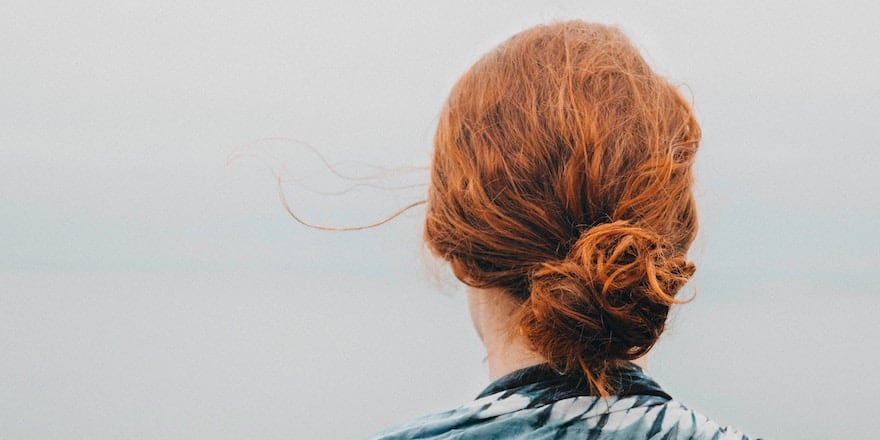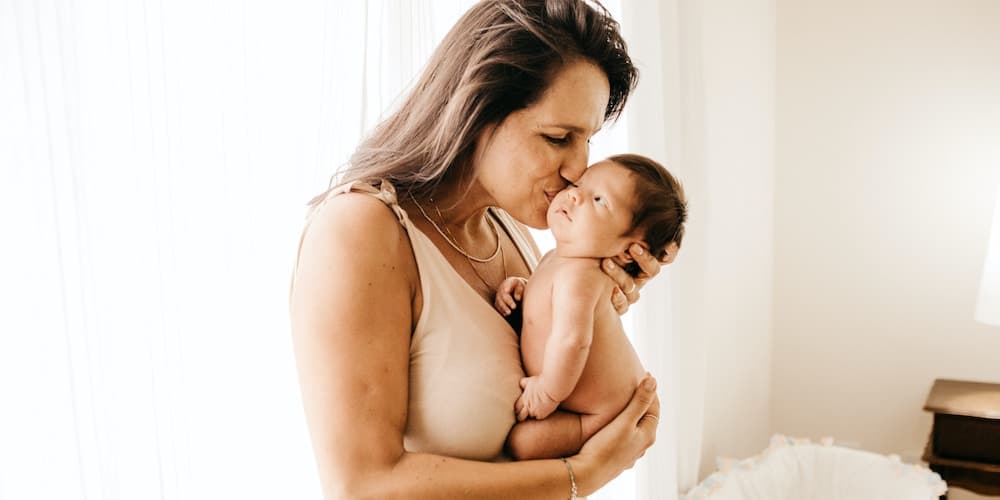Do you find a few hairs on your pillow? Do they come out in clumps when you shampoo or brush? Don’t panic, hair loss after the birth of your baby is normal and quite common!
During pregnancy, estrogen levels increase to stimulate the body and provide nutrients and oxygen to the fetus: hello to the famous “glow” of pregnancy that accompanies a fabulous mane and a radiant complexion.
These hormones extend the life of hair and slow hair loss.
Yes, but let’s go further! At the birth of the baby, estrogen production decreases sharply. About 3 months after childbirth, the hair loss process returns to normal.
Résultat ? Votre corps rattrape le retard, et vous perdez vos cheveux de grossesse en plus de chute physiologique normale. C’est ce que l’on appelle l’alopécie post-partum. Pas étonnant qu’ils tombent parfois par poignées !
Read also | The best dietary supplements for hair loss according to a pharmacist
How long does hair loss last after childbirth?
Factors in addition to hormonal upheaval
The hormonal upheaval is not the only explanation:
- In the postpartum period, you may be deficient in nutrients: vitamins, zinc, iron and other minerals may be lacking. However, their presence is necessary for the health of the hair fiber.
- Fatigue and stress: the new workload of caring for a baby, the disruption of routines, and reduced sleep are all factors that can affect the beauty of the hair.
From a few weeks to a few months
According to my research on postpartum alopecia, it generally lasts from a few weeks to a few months, starting from the third month after childbirth.
Le plus couramment, elle se résorbe seule aux alentours du 6ème mois après la naissance du bébé, mais peut durer parfois plus longtemps.
Plan on about a year to regain your pre-pregnancy hair.
Bon à savoir pour les jeunes mamans, l’allaitement tend à retarder la perte de cheveux car la production d’oestrogènes est maintenue durant cette période !
Si cette alopécie tarde trop dans le temps (< 5 mois) ou si la chute de cheveux est trop importante, je vous conseille de consulter un professionnel de santé pour écarter toute autre cause sous-jacente.
Since hair loss is mainly hormonal, it cannot be completely avoided. However, some good habits can be adopted to help limit this shedding.

How can you combat this hair loss?
Good nutrition before and after childbirth
Pour réduire cette chute importante, je ne vous apprends rien, tout commence dans l’assiette.
Proteins, omega-3s, fruits, and vegetables are your allies for maintaining your hair. Favor red meats, legumes, eggs, green vegetables, and fish to ensure you get plenty of iron, zinc, healthy fatty acids, and B-group vitamins.
These micronutrients are essential for hair fiber health and for slowing hair loss.
And there’s no need to wait until your little one is born to adopt new habits! A good diet is necessary throughout pregnancy.
Taking dietary supplements
Dietary intake is sometimes not sufficient depending on the deficiency encountered. Certain dietary supplements can help you regain beautiful, healthy hair:
- Iron and zinc supplements, two minerals that support hair health
- B vitamins and sulfur-containing amino acids (cysteine, methionine) that help boost keratin production
- Brewer’s yeast, rich in vitamins and trace elements
However, be careful if you are breastfeeding! Before starting any course of dietary supplements, make sure they are compatible with breastfeeding by consulting your doctor.
Targeted local treatments
Shampoos with mild surfactants and a slightly acidic pH, masks with targeted active ingredients (keratin, collagen, biotin) to combat hair loss, as well as certain vegetable oils can strengthen your hair fiber.
You can, for example, dilute an essential oil of rosemary, lavender, Atlas cedar, or peppermint in a vegetable oil such as jojoba or sweet almond oil to stimulate blood circulation and promote hair growth.
Essential oils should be used with caution; ask a professional for advice if in doubt, or if you are breastfeeding.
For greater effectiveness, don’t hesitate to practice scalp massages to activate scalp microcirculation, which is beneficial for hair growth.
Gentle hair care
Pour ne pas précipiter la chute des cheveux après votre accouchement, je vous conseille d’avoir des gestes doux envers eux :
- Avoid hair extensions, braids that are too tight, aggressive or overly frequent brushing, or hairstyles that pull on your hair: these actions tend to increase hair loss
- Also limit heat: flat irons, curling irons, and hair dryers set at too high a temperature
And if this hair loss is really affecting your mood, a new haircut may help you put things into perspective and appreciate this new chapter of your life!



